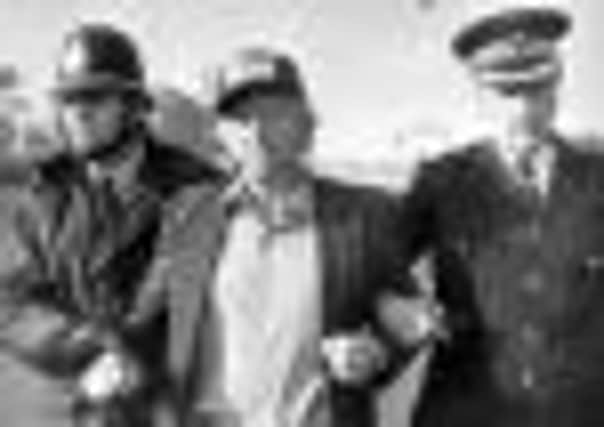Miners praised as reasonable people – by Margaret Thatcher


Private papers from 1981, which have been made public for the first time, show the former prime minister doubted the miners would go along with the National Union of Mineworkers’ leader “in trying to have a row” with her government.
She made the comments in an “off the record” interview with journalists in December 1981, less than three years before Mr Scargill led miners in a strike which socialist historians say resulted in the “most important defeat for the trade union movement” in more than half a century,
Advertisement
Hide AdAdvertisement
Hide AdInterview notes record how Mrs Thatcher asked whether she sounded “too patronising” when describing her feelings about “the miners”. She is noted as saying: “I have a lot of faith in the miners, let me say. They know. They know where the extra money comes from. And I think they are basically reasonable people. That sounds too patronising?
“They will think about their neighbours. I really do believe that, genuinely. Don’t put this down. My feeling about it was always that they will vote for Scargill because they recognise a very skilful and good negotiator. But I don’t think they would follow him in trying to have a row with government. I really don’t. I don’t think they will follow him on the political motivation.”
An online Trades Union Congress history of the 1984 strike says the Conservative government used its “limitless resources” to defeat strikers.
“The Conservative government’s long-term agenda, the privatisation of the energy sector, required a restructuring of the coal industry. An attempt at large-scale closures in 1981 was dropped when unofficial strikes spread rapidly and government ministers found themselves unprepared to fight at the time. This situation had changed by 1984,” it says.
“In March 1984, when five pits were announced for closure without proper review, official area strikes started in Yorkshire and Scotland. These were endorsed by the NUM executive which called on other areas to support them.
“It believed that there was a large hit-list of vulnerable pits and that a stand had to be taken before the heart was ripped out of the industry and coal communities were shattered. The government used its limitless resources (particularly the deployment of police on a national stage) to defeat the miners.”
The history adds: “Played out nightly on television screens for the rest of the nation, it became a titanic struggle lasting until March 1985 when, by the tiniest margin, a majority of conference delegates voted to return without a new agreement on managing closures in order to control the unorganised drift back to work and to salvage the union.
“During the strike, 11,291 people were arrested, of whom 8,392 were charged, mainly for breach of the peace, obstructing the police and obstructing the highway. This was without doubt the most important defeat for the trade union movement since the collapse of the General Strike in 1926.”
Advertisement
Hide AdAdvertisement
Hide AdHistorian Chris Collins said the 1981 Thatcher files revealed a prime minister under pressure but “not cracking”. The year – which saw the July wedding of the Prince of Wales and Lady Diana Spencer – was dominated by the failing economy and riots which broke out in several cities during the summer.
Mrs Thatcher also had to contend with the prospect of a split in Conservative ranks. Files suggest fears that a “gang of 25” Conservative dissidents may have been contemplating joining the Social Democratic Party.
Mrs Thatcher agreed to her personal papers being housed at Churchill College, Cambridge nearly a decade ago and documents relating to earlier years have already been released.
Her 1981 personal papers are being released by Cambridge University and the Margaret Thatcher Archive Trust nearly three months after official record keepers made 1981 government files available.